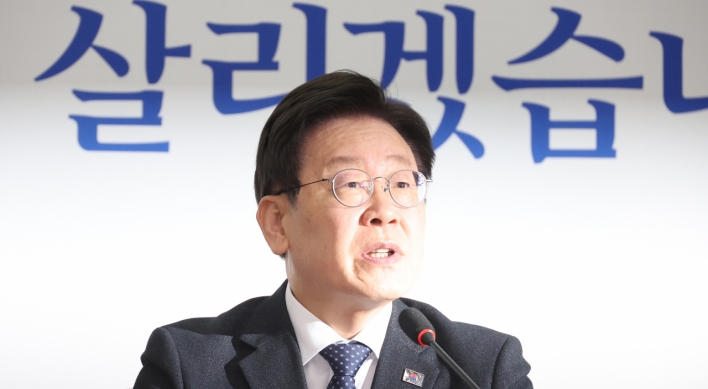[Editorial] A tricky provocation
N.K. should be made to pay price for mine blast
By KH디지털2Published : Aug. 11, 2015 - 17:25
The long strained inter-Korean relations are worsening in the days leading to the 70th anniversary of the peninsula’s liberation from Japan’s colonial rule and division into South and North.
The result of a South Korean investigation showed Monday that three wooden-box land mines believed to have been planted by North Korea were the cause of the explosion that severely wounded two soldiers on the southern side of the Demilitarized Zone last week.
In a statement, the South Korean military urged the North to apologize for and punish those responsible for the blast. It resumed a propaganda loudspeaker campaign along the tensely guarded border later Monday after pledging to make the North pay “equally pitiless” costs for its latest provocation.
The development is sure to dash hopes for inter-Korean rapprochement in the landmark year.
President Park Geun-hye may have to shift the focus of her Aug. 15 Liberation Day speech from coming up with messages intended to improve frayed inter-Korean ties to stressing a staunch defense posture against any military attacks from Pyongyang.
The North should not be allowed to go without paying the price for its brazen violation of the Armistice Agreement that ended the 1950-53 Korean War. The South Korean military needs to strengthen steps to eliminate the gaps in defense that might have enabled the North to make the latest provocation.
In the months ahead, tension on the peninsula is set to further escalate as Pyongyang is reacting vehemently against a joint Seoul-Washington military exercise scheduled for next week and preparing for a possible launch of a long-range missile in time for the 70th anniversary of its ruling party’s founding on Oct. 10.
Recent actions by the North have indicated that its leader Kim Jong-un has no interest in engaging in dialogue with the South on inter-Korean reconciliation and cooperation.
He rejected a request by the widow of the late liberal South Korean President Kim Dae-jung for a meeting during her cross-border visit last week. Pyongyang also refused to accept Seoul’s offer for inter-Korean talks, which was made to coincide with the former first lady’s trip to the North.
The isolated regime announced an abrupt measure Friday to push back its standard time by 30 minutes without any prior consultation with the South.
In this atmosphere, recent discourses in the South over the unification of the two Koreas may sound hollow. Seoul should now focus on containing the situation on the peninsula from escalating into a security crisis. It needs to strengthen cooperation with the U.S., China and other neighboring powers to induce Kim to change his attitude and open his regime to the outside world.







![[Hello India] Hyundai Motor vows to boost 'clean mobility' in India](http://res.heraldm.com/phpwas/restmb_idxmake.php?idx=644&simg=/content/image/2024/04/25/20240425050672_0.jpg&u=)









